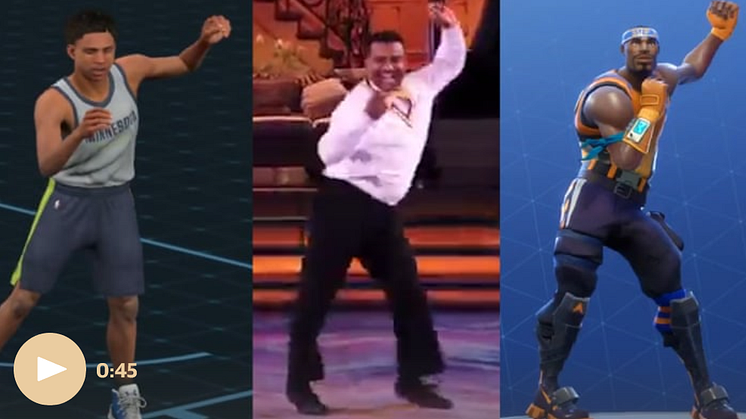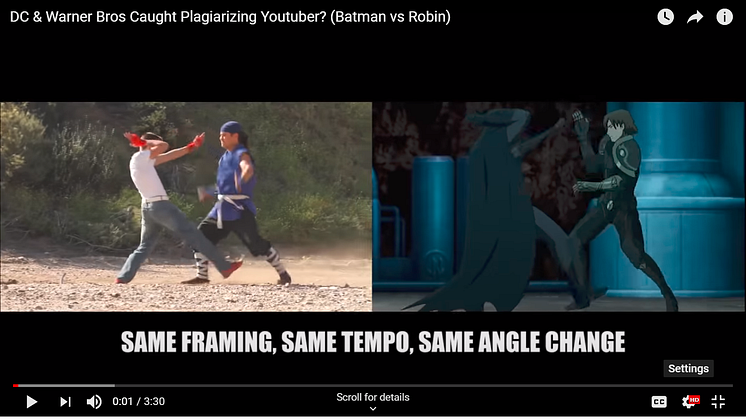
News -
Fortnite developer sued by Creators of dance moves
by Tan Jin San
A rapper named 2Milly is claiming the video game Fortnite is copying his signature dance move and selling it, and he is suing the game’s developer Epic Games.
In the lawsuit, 2Milly claims Epic Games is using his “Milly Rock” dance move and profiting from it by turning it into an in-game Emote called “Swipe It” that players will be able to unlock if they buy the game’s US$10 seasonal Battle Pass add-on. Emotes are dances that players can use in the game to express themselves.
Fortnite is seen as a phenomenon in the “battle royale” games genre, and it is free to play compared to its main competitor PlayerUnknown‘s Battlegrounds (PUBG), which mainly makes money from one-off software licenses that cost US$30 each.
Instead, Fortnite makes money by selling cosmetic items like costumes and dance Emotes. Fortnite has more than 200 million registered players and it is on track to generate US$2 billion in revenue for 2018. This makes its developer Epic Games worth US$5 billion to US$8 billion, according to the Bloomberg Billionaires Index.
Epic introduced the “Swipe It” Emote in July 2018. Besides that it has also incorporated popular meme dances, like the Floss Dance, and other famous moves from prominent music videos, including Snoop Dog’s wheel-turning move from the chorus of “Drop It Like It’s Hot” (“Tidy” in Fortnite) and BlocBoy JB’s “Shoot” ( “Hype” in Fortnite).
The rapper submitted an application on 4 December to register the Milly Rock dance with the United States Copyright Office.
2Milly is likely to not be able to copyright his signature move because dance moves are viewed as individual words and colours, and to do that would be to inhibit the creative expression of dancers. The Milly Rock is just a few dance moves, and is not considered a choreography, which can be copyrighted because it is defined as the composition and arrangement of a related series of dance movements and patterns organized into a coherent whole.” Examples are circus productions and stage movements of actors to figure skating.
Choreography can be copyrighted, but who they belong to is a different question altogether.
A landmark judgment in 2002 meant choreographers do not always own their dances. Martha Graham, head of the Martha Graham Dance Company and considered by many to be the founder of modern dance, passed away in 1991 and left her estate to her close friend Ronald Protas.
Protas claimed that he owned the copyrights to about 70 of Graham's dances and threatened to prevent the Martha Graham Dance Company from performing those works. This led to a legal battle between the two parties.
A judge ruled that 45 dances belonged to the Center as Graham worked as an employee of the Center for 35 years until her death. As a salaried employee, the Center financed sets and costumes, and received the royalty payments. Which means the dances she created were considered works-for-hire and are therefore owned by the Center.
Although the ruling was considered a triumph for the Center, Choreographers around the world were probably shocked to realise that they might not own the rights to the dances that they create.
For example, of the 70 dances by Graham, five belonged to individuals who commissioned them, 10 were determined to be in the public domain, and nine dances were undetermined because neither side had shown adequate proof of copyright ownership. Only one dance belonged to Protas.
We are sure this sparked a scramble among choreographers to their lawyers’ offices to find out which dances they have created are owned by them.
Besides 2Milly, Epic Games has also allegedly stolen dance moves from various entertainers who will never see a cent from what they have created.
Earlier this year, Donald Faison, who played Turk on the TV show Scrubs, found out a dance move of his character has been appropriated by Fortnite. He tweeted: “Dear Fortnite … I’m flattered? Though part of me thinks I should talk to a lawyer.”
The complaints are not just about dance moves. Epic Games has been criticized by Chance the Rapper for choosing to not include songs associated with certain dances so as to avoid paying fees on the songs, thus preventing the artists from sharing in the game’s success.
But there are entertainers who are not letting off Epic Games so lightly. Alfonso Ribeiro, who starred in The Fresh Prince of Bel-Air star as the character Carlton, is suing Epic Games for using his dance move in Fortnite. His lawsuit alleges that Epic Games used his dance, The Carlton Dance, without permission or credit. His dance is available as an Emote on Fortnite, named unsurprisingly Carlton. Ribeiro is also suing Take-Two Interactive, the developer of basketball video game NBA 2K for the same thing – using his dance without permission.
The Backpack Kid, an online celebrity whose floss dance move went viral after he performed it during Katy Perry’s Saturday Night Live performance in 2017, is suing Fortnite and NBA 2K for stealing his dance move. The Backpack Kid, whose real name is Russell Horning, is suing for unspecified damages and wants to stop the two games from stealing his move, the Floss Dance. It is available as an Emote on Fortnite called “Floss”.
Epic Games has been trying to avoid paying fees to the entertainers who came up with original dance moves, and they have finally been found out. The Emotes make Fortnite culturally relevant and are a way to attract and retain its players. But to do that it should compensate the artists accordingly. We are sure Creators who have had their work stolen will stand behind this view.
Related links
- TODAY paper:‘Fortnite’ phenomenon turns Epic game developer into billionaire
- PDF: Copyright Registration of Choreography and Pantomime
- Fresh Prince actor sues Fortnite for use of 'iconic' Carlton dance
- VIDEO: The Carlton Dance
- Meet the Dancing 'Backpack Kid' Who Stole Katy Perry's Spotlight on 'SNL'


